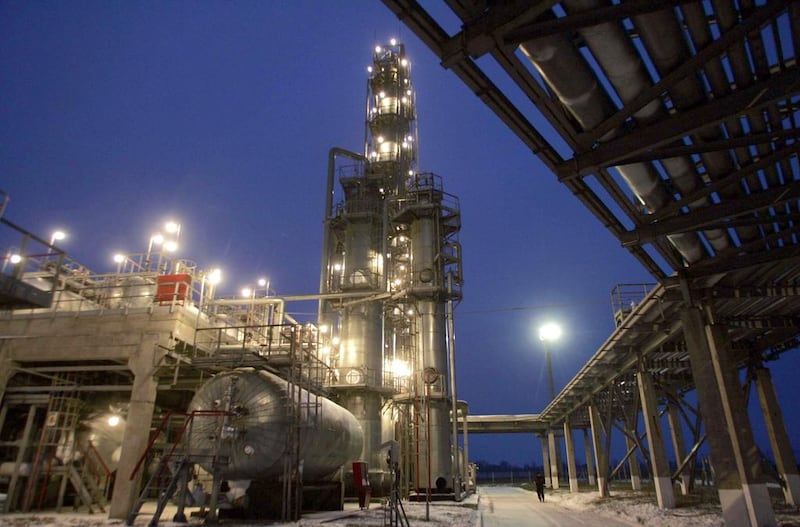"Counter Putin by liberating US natural gas," advocates John Boehner, speaker of the United States House of Representatives. "American officials should use natural gas exports as one component of diplomacy," proposes The New York Times.
US commentators are keen to use their new-found energy resources as a geopolitical tool against Russia during the Ukraine crisis. But Europe needs a strategy of its own, not just passively waiting for the US cavalry.
"Gas diplomacy" advocates expediting liquefied natural gas (LNG) exports from US shale fields. That would give the EU an alternative to Russian gas, making it less dependent on Vladimir Putin. Russia supplies about one-third of Europe's gas, and half of that comes via Ukraine. At the same time, 70 per cent of Russian exports and half of its government budget come from oil and gas.
The idea of expanding US LNG exports has merit in the longer term. But it is useless in the current crisis. There are six approved LNG projects, but the first will start only by late 2015. Although Mr Boehner used the crisis to attack the Obama administration, not even under a Cold War warrior such as Ronald Reagan would the plants have been built any faster. And relatively expensive LNG exports will not dramatically undercut Russian gas in Europe.
A stronger political coalition in favour of gas exports does send a signal to Russia that its market share will be eroded. But Europe cannot let itself be dependent on the fickle winds of American politics. With Russia as in the Middle East, US foreign policy has been equalled in irresolution only by Europe’s itself.
The European Union needs an energy policy that balances its vital environmental goals with economic security. Since the last Ukraine gas crisis, in 2009-10, Europe has indeed made progress. It has assisted Ukraine to cut its gas consumption by 20 per cent.
European gas demand has fallen because of replacement by cheap (but dirty) coal, economic recession, mild winters, improved efficiency and more renewable energy. New LNG import terminals in Poland and Croatia and interconnections will improve Eastern Europe’s security of supply. A new Trans-Adriatic Pipeline (TAP) will bring extra gas from Azerbaijan to Greece and Italy by 2018.
But European countries still allow themselves to be picked off individually by Russia. Germany and Italy, in particular, strike cosy side-deals with the Kremlin. In 2012, leaked Gazprom data showed that, contrary to the single market ideal, Eastern European countries paid much more for Russian gas than western ones: Macedonia was charged $564 per thousand cubic metres, while Germany paid just $379. Many interconnections – particularly reverse flow into Ukraine – are still missing.
The relatively small TAP is a far cry from the ambitious plans to bring Caspian, Iranian and Iraqi gas to Europe. The EU, its attention too often dispersed between member states, has been unable to exert its diplomatic muscle to cajole Iraq, Cyprus and Turkey, or Turkmenistan to solve disputes that stand in the way of new gas supplies.
And European energy policy remains self-indulgent and prone to political reversals. The United Kingdom, Poland, Ukraine and others have promising shale resources. Yet Europe is looking to the US for shale gas because it has done so little to develop its own– in the face of environmentalist pressure and government dithering. Meanwhile Germany, cool to shale, having shut down its nuclear industry in post-Fukushima panic and secured its own direct gas line to Russia, now fears to anger Moscow.
Most of Europe’s energy options are long term. Precisely for that reason, they need to be implemented now. The aim is not to replace Russian energy, but to diminish its leverage and lower its price. American gas is a bonus, but the EU can extend a helping hand to Ukraine, and seize its own energy security.
Robin Mills is the head of consulting at Manaar Energy, and author of The Myth of the Oil Crisis
Follow us on Twitter @Ind_Insights





